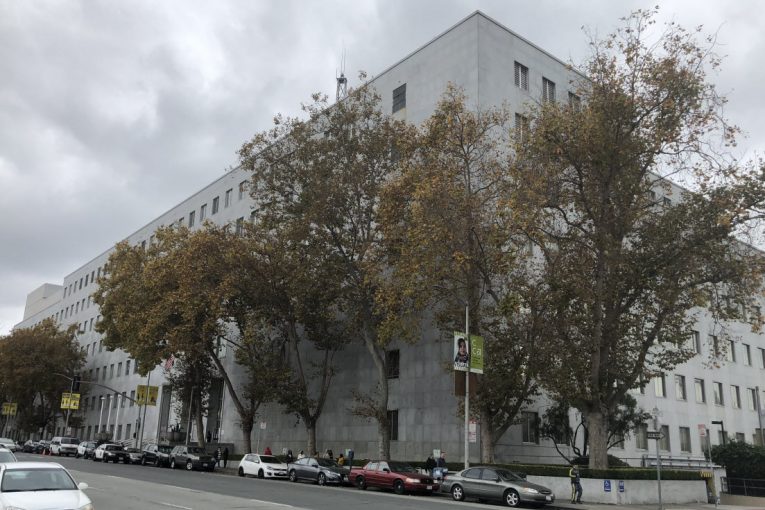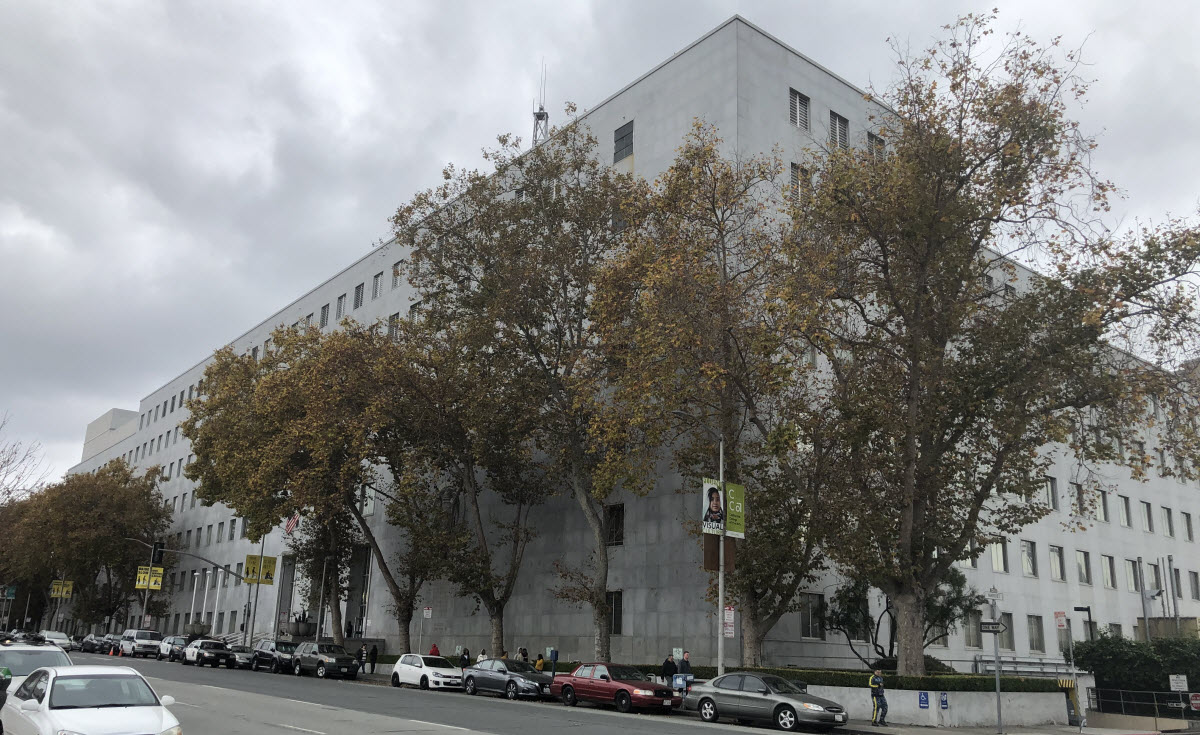

by Danielle Eden Silva and Manuel Espinoza
Defendant’s Consciousness Questions Continue in Attempted Murder Trial
By Danielle Eden Silva
SAN FRANCISCO – After the defense’s expert witness testifying that the defendant, Mr. David Lightfoot, was not conscious of his actions during the attempted murder, the prosecution brought one of the defendant’s behavioral health clinicians to the stand.
The trial had resumed with the testimony of Dr. Laeeq Everett, the defense’s expert witness and a clinical and neuropsychologist.
Dr. Everett expanded on certain terms. Awareness was defined as the awareness of an individual’s surroundings and self-monitoring behavior. The neuropsychologist noted that, even when an individual is delusional, they are still aware of making choices that could be poor or engage in decisions against their own self-interest. However, thought disorder could impair one’s consciousness, leading one to act devoid from reality and having distorted beliefs.
The prosecution also asked about Dr. Everett’s examination style. On Aug. 23, 2019, the witness interviewed Mr. Lightfoot. He noted that he gave a mix of narrative and targeted non-leading questions, including the background of the defendant and the defendant’s memories of the incident. Dr. Everett only did handwritten notes of that interview, not an audio recording. The report would be typed up on Sept. 4, 2019 – three years after the incident.
In the notes, the neuropsychologist stated the defendant had a flat affect, meaning he had a lack of expression and emotional conveyance. Mr. Lightfhoot had also noted that he was stressed out about the case.
The notes also stated the defendant had a history of using hash marijuana and alcohol. These substances appeared to make him angrier after usage, but stimulated him.
In regard to the incident, the defendant stated he heard monstrous voices that made him stab the man. The defendant allegedly had a history of hearing voices, which were referenced in an October 24 event at his mother’s home. Mr. Lightfoot, however, did not remember anything else independently of the incident, including the claims that the victim had raped his mother or being transgender.
The prosecution also asked about Mr. Lightfoot believing the victim in the case was someone who raped the defendant’s mother. Dr. Everett noted he did not know the details, such as if the rape incident happened or not. He noted that even if the event was real, the defendant could still be delusional in thinking the wrong person committed the act.
The prosecution presented Dr. Everett three of his previous reports, two being a schizophrenia diagnosis and one being a bipolar disorder diagnosis. He noted that he used the term acute psychosis in the schizophrenia reports but not in the report that he wrote for Mr. Lightfoot.
Dr. Everett noted that psychosis comes in terms of degrees but, while he didn’t write it down in the report, he had meant acute psychosis. Additionally, acute psychosis depends on the individual.
The neuropsychologist stated he believed the defendant was under psychosis, which could be triggered by stress or substance use. Stress factors like homelessness and lack of sleep could be triggers for periods of psychosis.
Dr. Everett also noted that the defendant was on medication for psychosis that lowered his dopamine, changed his metabolism, and made him less active.
Following Dr. Everett’s testimony, Judge Eric Fleming read facts on the case agreed upon by the prosecution and the defense.
On October 24, 2016, Mr. Lightfoot was detained. He had no narcotics or narcotic paraphernalia on him. He was noted to have medication.
Assistant District Attorney Brittany Delgado began her rebuttal by submitting Mr. Lightfoot’s four-page record from the Department of Public Health. The prosecution noted the Nov. 23, 2020 date where the defendant received surgery.
The first witness called for rebuttal was Adrian Lundbohm, a behavioral health clinician.
Mr. Lundbohm wrote a report on Mr. Lightfoot on Oct. 25, 2016. This was a mental status exam that evaluated the range of functioning from the defendant. His report was only the initial assessment to see if the defendant needed additional services.
According to his report, he did not note the defendant needed special housing. Mr. Lightfoot also had a noticeable memory and was not intoxicated but appeared to be coming off of something. The witness did not follow up with the defendant but notes he would have scheduled a follow-up appointment if necessary.
Mr. Lundbohm also noted there are lots of instances of psychosis in county jail and disorganized thought content.
The trial is to reconvene in the afternoon with Dr. Shelby Murphy testifying for the prosecution.
Emergency Room Doctor Called as an Expert Witness in Attempted Murder Trial
By Manuel Espinoza
SAN FRANCISCO – On February 03, 2020, an evidentiary hearing was held in Department 16 of the San Francisco Hall of Justice.
The hearing was part of an ongoing attempted murder trial against the defendant, David Lightfoot, for stabbing a victim in the back with a knife. Assistant District Attorney Britney Delgado formed her rebuttal to previous testimony by calling the emergency room doctor, who treated the victim, to the stand. The prosecution rebuttal followed Deputy Public Defender Landon Davis’ presentation of expert testimony from an emergency room physician about the severity of the injury. The defense claimed that the defendant was mentally incapacitated at the time of the stabbing in previous hearings.
The prosecution called Dr. Shelby Murphy, who treated the victim in the emergency room at the time of the incident, to the stand. Judge Eric Fleming determined Dr. Murphy is presumed as an expert witness in the hearing.
The prosecution presented Dr. Murphy with the emergency room report. The report contained the medical notes from the time of the incident. Dr. Murphy claimed that she “vaguely remembered the incident,” and that they had seen this type of injury multiple times.
The prosecution continued by questioning the terminology that Dr. Murphy used for the medical report and what it implies. Dr. Murphy responded by saying that they chose to list potential complications due to “concern that the knife was still in place and the location of it.” Dr. Murphy continued by stating the concern was that the knife could have impaled the spine, popped a lung, or caused damage to the aorta and the cardium.
Dr. Murphy later referred the victim to the trauma surgery and justified their actions by stating, “I would not have removed the knife by myself because we needed to determine the trajectory.” Once referred to the trauma surgeon, they were able to take X-rays of the injury. The results showed that the injury did not reach the spine.
The prosecution then asked what the Glasgow coma scale is used for in the medical field. Dr. Murphy indicated that it is used to determine the level of consciousness directly from head trauma. There was no head trauma associated with this injury.
The prosecution then asked Dr. Murphy about the differences in medication prescribed to the patient. First, the prosecution asked what hydramorphone was, to which Dr. Murphy stated, “It is a long-acting IV pain medication.” Next, Dr. Murphy identified Fentanyl as “a short-acting IV pain medication.” Dr. Murphy stated that she had prescribed this medication to the victim in order to relieve the pain from the injury.
The defense started his round of questioning by asking if Dr. Murphy had followed up with the patient after releasing them. Dr. Murphy stated that she did not follow up. Additionally, Dr. Murphy clarified that the medical record was a list of concerns rather than actual injuries that occurred.
Dr. Murphy stated, “As physicians, we must list all potential concerns.”
The defense also asked about the details of the Glasgow coma scale and if it only included head trauma. Dr. Murphy responded by saying, “Correct, the scale is only used for head trauma, not from mental illness or dementia.”
With no further questions, Judge Fleming excused Dr. Murphy from the stand. The prosecution had no further witnesses in the hearing.
The prosecution followed by presenting another piece of evidence to the jury, a 911 phone call of someone reporting a stolen bike and a description of the suspect.
The caller reported a suspected stolen bike at the intersection of Market and 8th Streets. The caller claimed to have seen the suspect attempting to ride it across the street before it ultimately broke down.
The suspect claimed that the bike was his own but later took off down the street. When asked about the description of the suspect, the witness claimed that he was a thin, white male wearing a white hoodie, who looked to be about 5’7 and in his late 20’s or early 30’s.
The witness stated that they saw the man walk off down 8th Street, away from Market Street, leaving the bike behind. The witness further stated that they did not actually see the suspect stealing or taking the bike. The 911 operator told the witness that they “can’t prove he stole the bike” and that they could “walk away from the bike.” This was the last piece of evidence that the prosecution chose to present to the jury.
Jury instructions are scheduled for next week. The trial is scheduled to reconvene tomorrow at 9:00 am.
